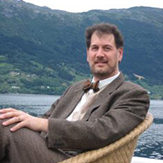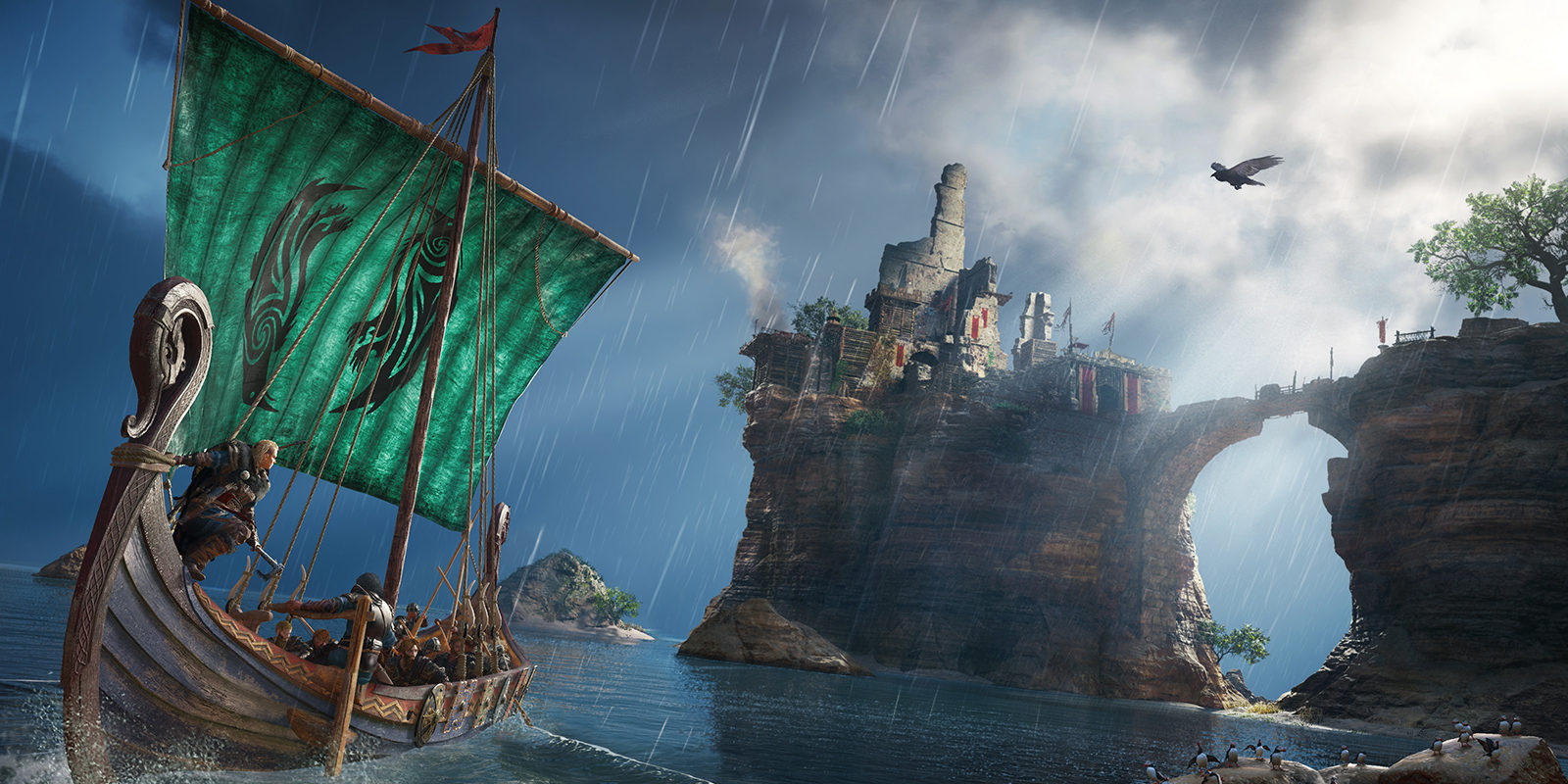It took awhile for Scott Mellor to realize he was teaching his class backwards.
For years, Mellor, a distinguished teaching faculty member with the Department of German, Nordic and Slavic+ Studies, would begin his popular World of the Sagas course, a First-Year Interest Group (FIG) based on the legends and lore of Iceland and the Vikings, by asking his students to read poems and prose from the early Middle Ages. He’d end the course by showing them modern movies and TV shows like the History Channel’s popular drama “Vikings,” to help spark connections to what they had learned.
And then it dawned on him.
“If I started the course by looking at the movies and TV shows instead, I would produce a certain amount of intellectual confidence in the students because they knew those movies,” explains Mellor. “It would allow us to make observations and assess what we know and what we don't know.”
With this year’s 18-student cohort, Mellor took the strategy one step further. He had his students begin the class by playing Assassin’s Creed Valhalla, a 2020 open world, action-adventure video game. In the game, players assume the role of Eivor Varinsdottar, a 13th century Viking raider who must use a mix of stealth and ax-swinging force to navigate political and military conflicts with Anglo-Saxon kingdoms in medieval England. During the game, players explore digitally rendered versions of London and York, as well as a couple of dream-vision visits to mythological Norse locations like Asgard and Jotunheim.
The long-running Assassin’s Creed games, developed by Canadian publisher Ubisoft, are lauded for their attention to historical and geographic detail, a fact Mellor discovered when he began playing the game last summer.
“I realized that the people making these games used a narrative structure,” he says. “You could see that somebody knew something about medieval Scandinavia, because they were picking out things that were interesting components of the sagas.”
Mellor’s students were immediately enthusiastic about the experience.
“I found that I learned a lot more than I expected to,” says Allie Bacholl, one of the freshmen in Mellor’s class. “Playing Assassin's Creed Valhalla was homework that I looked forward to, and I found that I retained more information from the video game than I had from some of my readings. It also made the readings for the class more engaging since I recognized names and events in the readings from those referenced in the video game.”
Mellor was already aware of the power of gaming. He grew up playing Dungeons & Dragons and picked up PC gaming in the late ‘90s while in graduate school. During the height of the pandemic, Mellor worked with students in the Bradley Learning Community, a first-year dormitory group, to build community through playing videogames like Minecraft together online.

Who isn't enthusiastic about coming to college and finding out your assignment is to play a game?
But Mellor found that it wasn’t just a matter of the students being entertained by an interactive experience. Gaming also broke down barriers between them much faster than in the past, leading to deep discussions about historical accuracy and issues that had a modern resonance, like gender roles and relationships.
“It really developed a lot of this intellectual curiosity that I think took many more weeks to come to in the old way of teaching,” says Mellor. “It's also like taking them on a field trip. You can't take them on a field trip to a thousand years ago, but through the game I was even feeling like I was learning something about this time period. I was like, ‘Okay, I have to navigate through this fjord and, you know, I will confess I have not navigated a boat through a fjord before.’”
In another part of the game, Eivor, the protagonist, is tasked with finding a lost comb—an event that also occurs in the Laxdaela Saga, one of the Icelandic sagas that revolves around a doomed love triangle.
“In Assassin’s Creed, you get a better understanding of the historical figures the game features,” says Ethan Park, another student in Mellor’s FIG. “Reading about King Aelfred [the 13th Century King of the Anglo-Saxons] doesn’t always evoke just how significant and powerful his kingship was. Seeing him impact your character’s story evokes an emotional response.”
The old sagas didn't always include roles for women. The video game gives players the option to play as a male or a female character, but those who choose the latter aren’t given a different storyline to follow—they’re just playing a male role as a woman. Mellor found this dichotomy useful in starting another interesting discussion with his students.
“What does that say about our society--and what does that say about their society?” he asks. “And that created another avalanche of questions: What would the woman's story be?”
Mellor used departmental gift funds to acquire enough copies of the game to go around, and there were enough students in the FIG who owned the hardware necessary so that all of them could play the game. Next year, Mellor plans to use the game again, but this time, he will set up a dedicated gaming room where students can come and play it, solo or in groups.
“I'm surprised at how well this worked,” Mellor says. “Seldom do you try something and it's really successful right off the bat. That says to me I'm on the right path.”

